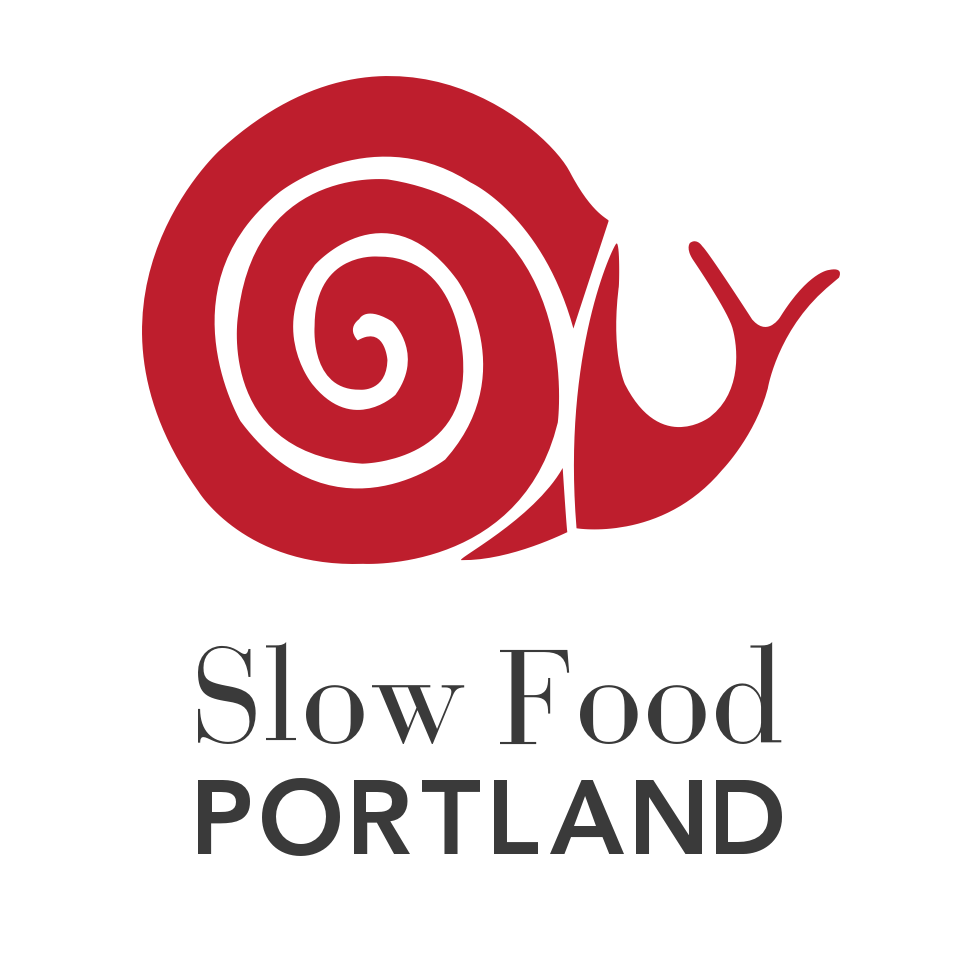What Does Food Waste Say About Us?
By Mary Silfven
At Slow Food Portland, we believe in a world where everyone can access food that is good for them, clean for the planet, and fair to the people who grow and prepare it. We work to transform our broken food system through education, connection, and collective action—values that are at the heart of both the Slow Food Portland and Food Waste Prevention Week, happening this year from April 7–13, 2025.
Food waste is a powerful reflection of everything that is wrong with our food system: overproduction, inequity, environmental harm, and a cultural detachment from the labor, land, and legacy behind what we eat. Our current food policies and systems prioritize profit and convenience at the expense of people and the planet—upholding systems of oppression and extraction. Meanwhile, we face a climate crisis, public health crises, and communities still struggling with food apartheid and diet-related diseases.
Food Waste Prevention Week is a time to slow down and examine these contradictions. How can we waste 30–40% of our food supply while millions in our own communities go hungry? How can we keep treating food like a disposable commodity, when it’s the result of irreplaceable cultural knowledge, human labor, and ecological interdependence?
Reducing food waste is not just about scraps and leftovers. It’s a way to build a better food future.
The Climate and Public Health Case for Preventing Food Waste
Globally, one-third of food grown for human consumption is lost or wasted every year. That’s about 1.3 billion tons of food—and a $2.6 trillion economic loss. In the U.S., that waste is responsible for about 170 million metric tons of CO₂-equivalent emissions annually, which is like running 42 coal-fired power plants. Beyond methane emissions from rotting food, the true climate cost comes from wasting the water, land, energy, and fertilizer used to grow and transport food that never gets eaten.
According to Project Drawdown, cutting global food waste in half by 2050 could prevent 88.5 gigatons of CO₂-equivalent emissions. A 75% reduction would prevent over 100 gigatons, while also saving:
75 million acres of land
3.2 trillion gallons of water
6.35 billion kilograms of nitrogen fertilizer
This is not just good for ecosystems—it’s a public health imperative. A healthier planet means healthier people. A more just food system means stronger, more resilient communities.
A Slow Food Approach to Prevention
In the U.S., most food is wasted at the consumer level. We throw food away because it looks imperfect, because we overbuy, or because we misunderstand expiration dates. These habits are driven by a culture that values speed, abundance, and appearance over respect, relationship, and intention.
A Slow Food approach to food waste prevention means:
Nourishing cultural and biological diversity: valuing “ugly” produce, heirloom varieties, and traditional preservation techniques that reduce spoilage.
Learning and sharing: teaching each other how to store, preserve, and cook with what we have—and honoring the food knowledge of BIPOC communities, elders, and farmers.
Changing systems, not just behaviors: advocating for policy shifts like standardized date labeling, better food recovery infrastructure, and community-based food rescue programs.
Food Justice Means Wasting Less and Feeding More
No food system can be called equitable when we waste vast amounts of food while people in our communities go hungry. Reducing food waste is one way to reclaim food from a system of exploitation and restore it to a place of dignity and care. But redistribution isn’t enough. We must also ensure that people have access to nutritious, culturally appropriate, and affordable food—not just surplus or “rescued” items.
This is about reimagining our entire relationship with food: shifting from transactions to traditions, from extraction to reciprocity. It’s about slowing down and asking hard questions. What do we truly value? And what kind of food system are we building for future generations?
Take Action During Food Waste Prevention Week
This April, Slow Food Portland invites you to join us in:
Cooking with what you already have at home before buying more
Celebrating the imperfect, seasonal, and overlooked ingredients
Hosting a “leftovers potluck” or a fermentation workshop in your community
Advocating for change: support food policy that reduces waste and promotes equity
Learning from those on the frontlines of food justice, especially BIPOC-led efforts
Together, we can reclaim food from waste and rebuild a food system that reflects our deepest values.
Because food is too precious to waste—and too powerful not to transform.
